Nabil Hirbawy from Siwa, Egypt lost an eye to his craft, but that hasn’t dampened his passion for carving salt rock into beautiful works of art!
Nabil Hirbawy was polishing off a small salt sculpture when a small piece of it struck him in the eye, leaving him partially blind – not only physically, but also to the dangers of the craft that has left deep scars on his hands. “I love it,” he says of his work in the Siwa Oasis near Libya.
Salt creates all kinds of havoc in the oasis. Otherwise fresh water springs are destroyed when they run into lakes so thick with salt, a light brush with the water leaves behind crystals. Because of it, locals are restricted to growing dates and olives and other crops that can withstand the region’s saline soil. But in a classic case of turning lemons into lemonade, a small cottage industry has emerged from this would-be curse.
Formerly a chef, Hirbawy has been carving small lamps and other sculptures out of salt for the past six years. He works in a tiny workshop on a dusty side street that doubles as a retail store. Everything is stored there, including his tools and the salt rock harvested nearby, and all of it is covered in a fine layer of salt dust.
During the summer months, when water in the lakes evaporates, Hirbawy and 3 helpers take a donkey cart down to one of three major lakes. They work for up to 8 hours a day, chopping away at the giant boulders of rock which are then transported back into town.
Working with this material is similar to working with alabaster, says Hirbawy, although salt is subject to melting and must be stored carefully. At least an eight hours drive outside of Cairo, the Siwa oasis is incredibly remote, so there are few buyers for the milky pieces stacked on shelves throughout the store – some even connected to electricity and used as lamps.
But still, like the veiled weavers of Siwa who are reviving the ancient art of making Kleem (rugs) that were once shipped throughout the world, before globalization and capitalism diminished their value, this cottage industry is a sterling example of how local industries can have both an environmental and social benefit.
So the next time you take a trip – to Siwa or elsewhere – why not make it sustainable? Stay in an eco-lodge that recycles and serves organic food, reject the mass-produced crap from China, and support the local craftsmen such as the committed one-eyed stone-carver from Siwa!

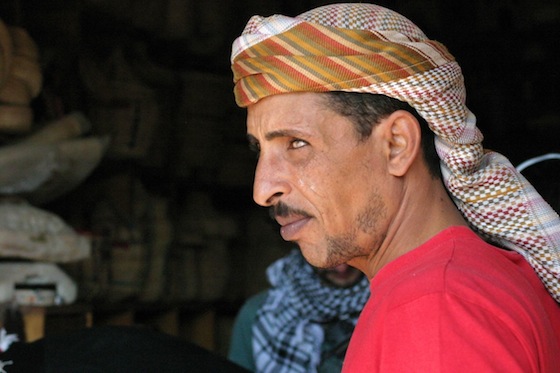

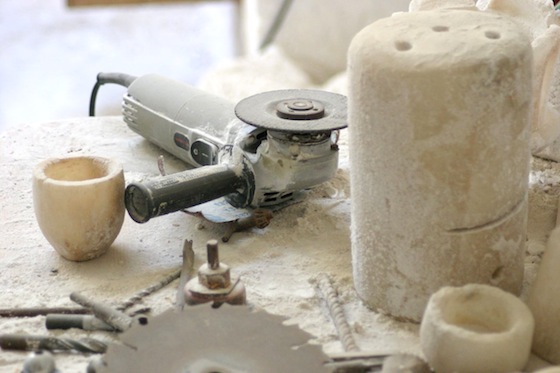
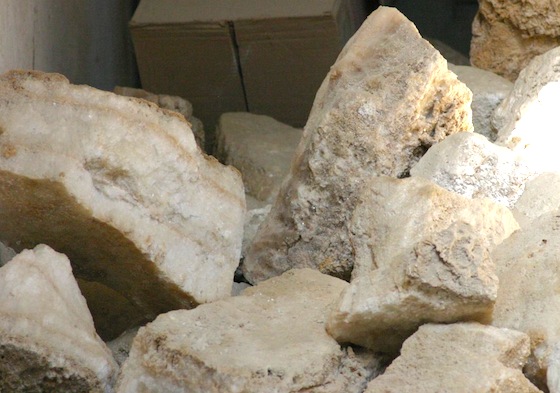
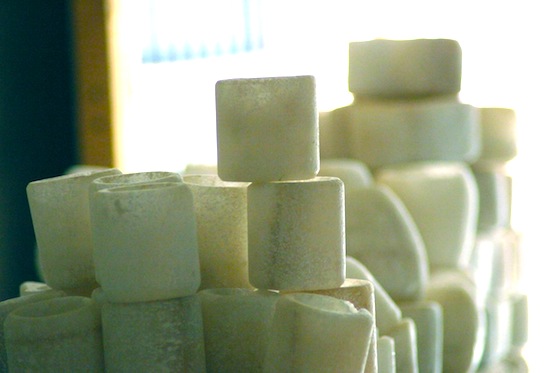
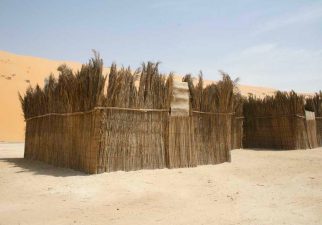
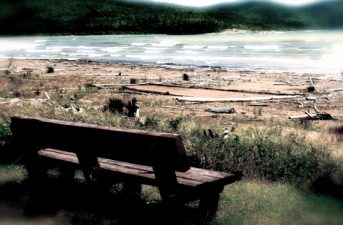

Dear karin,
I have been searching for a way to get in touch with a company in Siwa oasis to get this beautiful salt carvings..but I have not been very succesful with my search…would it be possible to send me a address where I can get in touch with them. many thanks.
Email [email protected]. She should be able to help.
I agree Karin. And you can feel it in the atmosphere of their shops. The carver’s love is infused in the products, whereas goods produced on an assembly line have virtually no character to them at all.
Thanks Zaufishan. He’s such a great guy and his work is beautiful. I think he prefers carving stone to carving meat 🙂
What I liked about Morocco, and what you’ve found in Siwa, are people who are still connected to their craft. So much of what we see in oriental markets is from China, and I appreciate the fact that people are still earning a living, if only modestly, by doing things the old fashioned way, by hand as it was always done before machines and globalization.
That was very interesting Tafline. A prayer for Nabil, such motivation! In Islam there’s a saying explaining that being blind does not restrict one’s ‘vision’ – to be artistic, to be tenacious, to feel green!